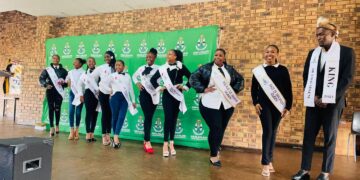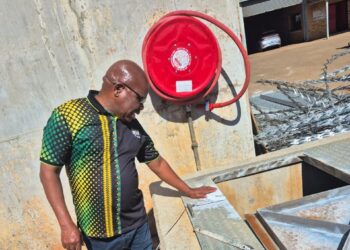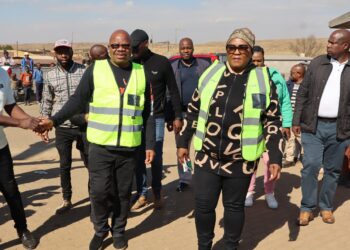Thulisile Bhuda’s IsiNdebele children book has gone a step further in protecting and transfering local African indigenous knowledge Systems.
The book, Kwekwezi’s cultural mural art is influential in directing future language policy development in the province and in South Africa. The book is based on a true life story of a Ndebele art custodian’s journey. Creatively written, the book explores how a young girl becomes a mural artist. The communicative process of the narrative also employs the use of powerful colorful illustrations that depict local AmaNdebele people, their attires and art.
In an interview with the Highveld Chronicle, the writer Thulisile Buda indicated that, she wanted to write exciting stories about African cultures using indigenous languages for local children to learn their true identity and also about who their ancestors are and also their origins. “I want to preserve culture and heritage, which is hidden and stored in African languages. African languages are at the point of being eroded and teaching the younger generation about the importance of preserving Indigenous languages is a tool of protecting them,” Buda said.

Kwekwezi’s cultural mural art demonstrates the preservation of local knowledge systems in its most basic form. The book succeeds in cultural information transfer to younger and future generations of AmaNdebele tribe in Mpumalanga and South Africa. “In South Africa, indigenous languages have a future because we as indigenous people are working hard in preserving them. We as citizens also need assistance from government to create policies that protect these languages. Furthermore, indigenous languages should be considered as medium of instruction in schools so that learners get to learn school content in their own languages,” Buda pointed out.
She went to say that, “By developing ways and strategies that are fun and exciting for young people to participate in. The aim will be promoting indigenous languages and teaching the youth the importance of knowing their own languages. It is very important for young people to understand that their languages are not primitive or old fashioned. Rather, they contain wisdom and knowledge of our ancestors hence they need to be protected.” In Mpumalanga, traditional knowledge issues in various fields are important to human survival and the quality of life, including agriculture, health, sanitation and water. Buda is a 28-year-old female from KwaNdebele and also a culture activist, indigenous scholar and currently a PhD candidate in indigenous Knowledge Systems with the North-West University.























